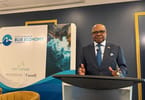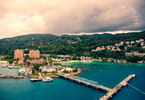“Recent news articles have favored the sensational rather than the fact in decrying the lack of benefit felt by the poor ahead of the 2010 FIFA World Cup™,” said Cape Town Tourism CEO, Mariette du Toit-Helmbold, in response to media articles that South Africa’s FIFA World Cup project has failed its citizens.
But, argues Du Toit-Helmbold, the FIFA World Cup was never offered as a golden solution to poverty: “Despite the fact that segregation was de-regulated decades ago, socio-economic factors have meant that townships are still very much a part of South Africa’s landscape. Government has been rolling out housing redevelopment programs and building community infrastructures in townships for some time now, and this has certainly made these communities more habitable. But poverty is the legacy of apartheid, as is the removal of people from their natural homes, and it is something that government, business, and community are still struggling to rise above. The FIFA World Cup™ has created jobs across a number of sectors, but it is not the answer to all of our problems.”
Many of the media stories focus on Blikkiesdorp, which has been labeled as anything from a “concentration camp” to a “forced removals solution.” In fact, Blikkiesdorp is a temporary residence for people in a housing emergency – including those people that will shortly be given permanent homes. Du Toit-Helmbold acknowledges: “Blikkiesdorp is far from an ideal living space, and it does reflect the reality of life for many South Africans. But it is certainly not a comprehensive representation of Cape Town’s townships.”
Township tourism is a vital and exciting part of the Cape Town experience. A township tour was included in 80 percent of itineraries of the 122 international media groups that Cape Town Tourism hosted between January and May 2010. In Cape Town, tours are available in Langa, Gugulethu, Khayelitsha, Kayamandi, and Lwandle where experienced operators have worked with the resident communities to establish a safe and interesting perspective of everyday life in Cape Town. Interactive and socially attentive, these tours have the buy-in of the community.
Said Du Toit-Helmbold: “Tour operators are very involved in educating residents about the benefits of tourism and do an immense amount of social responsibility work there, negating any notions of exploitation. For many young township dwellers, this exposure to the tourism industry whets the desire to enter the profession. For others, such as crafters, restaurateurs, and musicians, the tours are a lifeline to livelihood. The 2010 FIFA World Cup™ is not the answer to our problems but, in the long run, the continued growth and mindful sustainability of the tourism sector will go a long way towards helping many people rise above their circumstances.”
WHAT TO TAKE AWAY FROM THIS ARTICLE:
- The 2010 FIFA World Cup™ is not the answer to our problems but, in the long run, the continued growth and mindful sustainability of the tourism sector will go a long way towards helping many people rise above their circumstances.
- “Recent news articles have favored the sensational rather than the fact in decrying the lack of benefit felt by the poor ahead of the 2010 FIFA World Cup™,” said Cape Town Tourism CEO, Mariette du Toit-Helmbold, in response to media articles that South Africa's FIFA World Cup project has failed its citizens.
- But poverty is the legacy of apartheid, as is the removal of people from their natural homes, and it is something that government, business, and community are still struggling to rise above.






















